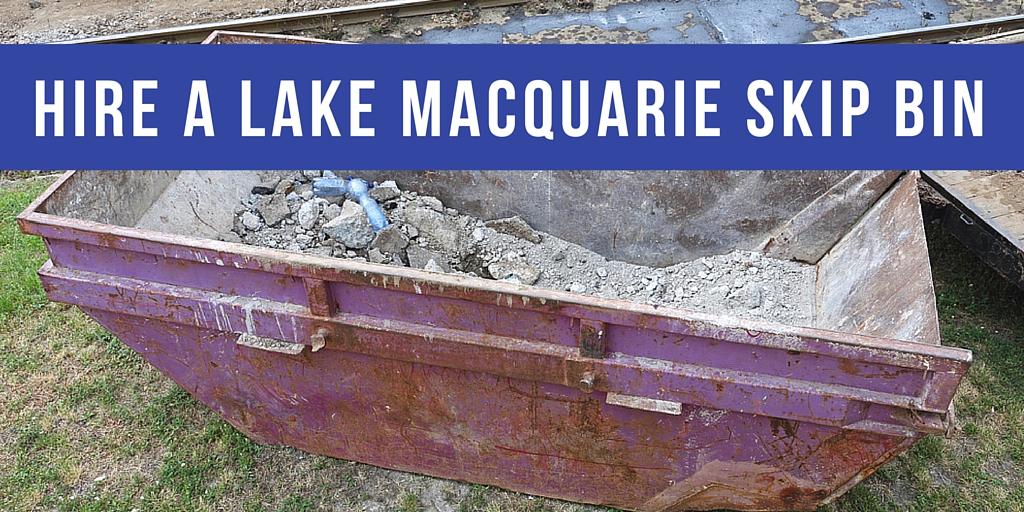Part of any boat building or repair project is waste. Whether it is empty drums of resin, left over timber offcuts, trimmed fibreglass stands or mixing pots and brushes there is unavoidable.
Boat builders waste removal
A Waste Management Plan that describes how waste will be minimised, reused or recycled, where residual waste will be disposed of offsite, and what measures will be used to ensure that discharges from the facility meet relevant statutory and regulatory requirements. The plan should also cover management of wastewater runoff and ‘clean’ stormwater. You should have one!
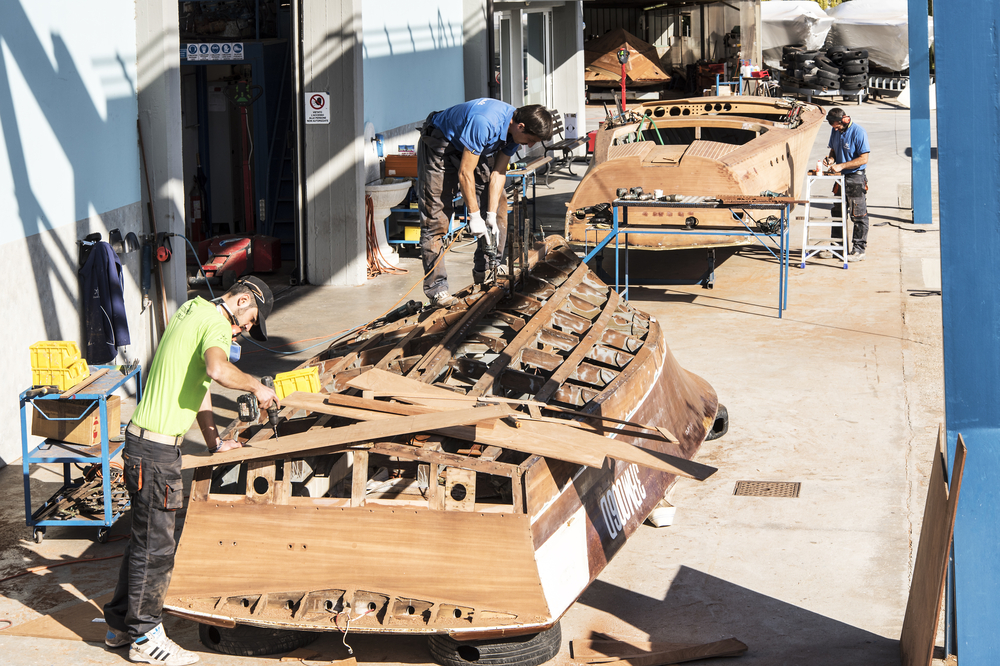
If you are working on your yacht or boat and have a sizeable amount of waste to remove then the simplest way to deal with it is a skip bin. They are large, come in multiple sizes and can be dropped off and collected from just about anywhere you can fit a pantech size truck. Even fairly tight spots can be managed with the smaller sized bins and a fairly straight access.
Different segments of the shipbuilding process produce their own types of waste that must be disposed of in accordance with regulations. Steel cutting and shaping generates wastes such as scrap metal from steel plate cutting and shaping, paint and solvent from coating the steel and spent abrasive from the removal of oxidation and unwanted coatings. Scrap metal poses no inherent environmental hazard and can be recycled. However, paint and solvent waste is flammable, and spent abrasive may be toxic depending on the characteristics of the unwanted coating.
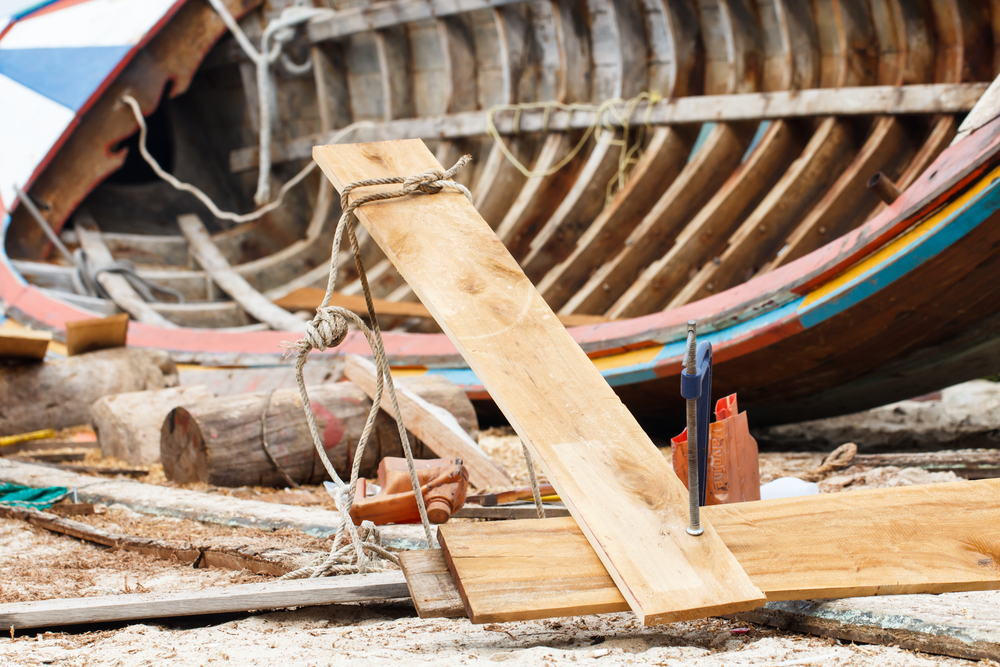
Experience has taught us that the skip bin is about the best possible scenario for quick and easy removal of all the boat building junk and leftover materials. Don’t try and fit it all in your wheelie bin, just deal with it once and get it out of the way.
A few quick tips on keeping waste under control:
Only put solid, inert general wastes into industrial skips as these will generally go to
Council waste depots.
Periodically check all waste containers and reorganise or remove large items from them
to ensure that they do not block the containers. Also ensure that there are no obstacles
to prevent access to the containers.
Ensure that all bins, industrial skips and sealed containers are emptied regularly.
Ensuring that all containers for waste oils, solvents and other chemicals or potential
contaminants (paint, paint thinners or acids) are empty and have been dried out before
disposing of them in waste bins.
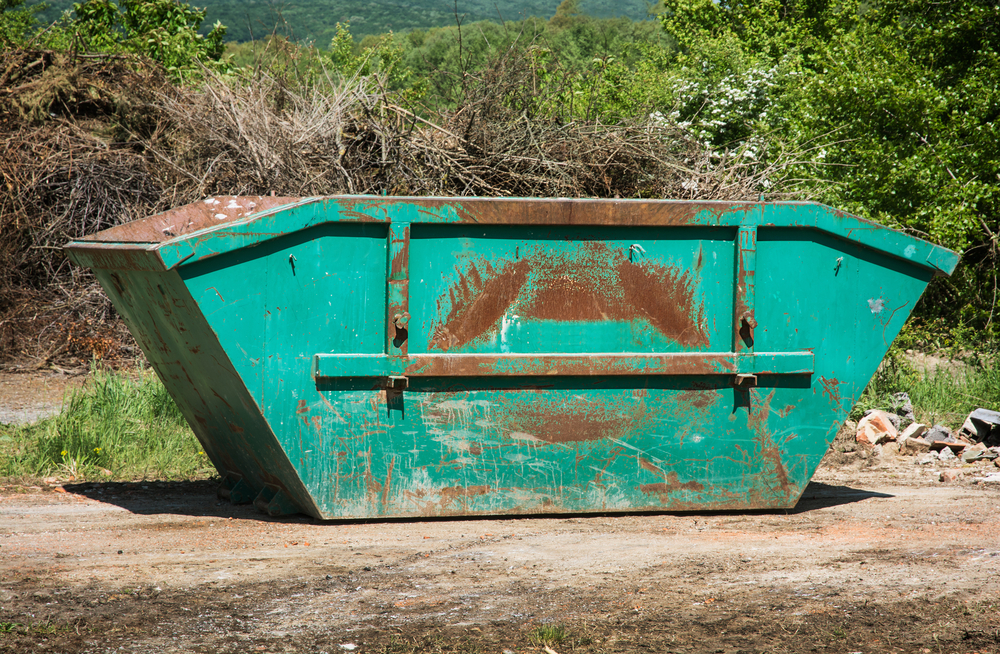
Using a skip bin for boat builders rubbish removal
Our recommendation for a local skip bin hire service in Lake Macquarie is Lake Macquarie Skips – lakemacquarieskips.com.au. They do a good job at a fair price, turn up and take away the rubbish on the day you need them and have enough drivers, vehicles and bins to service the whole of the lake.
Separate solid wastes as soon as they are generated, to:
- Minimise the time and effort involved in re-sorting wastes prior to disposal;
- Maximise the volume of re-useable or recyclable wastes;
- Minimise the volumes of controlled (hazardous) waste by ensuring that they are not mixed with, and thereby contaminate, general waste; and
- Facilitate the disposal of compatible waste types.
Establish a recycling station in a convenient location, with clearly labelled waste
containers for individual types of solid waste, including under cover spill trays for battery
storage.
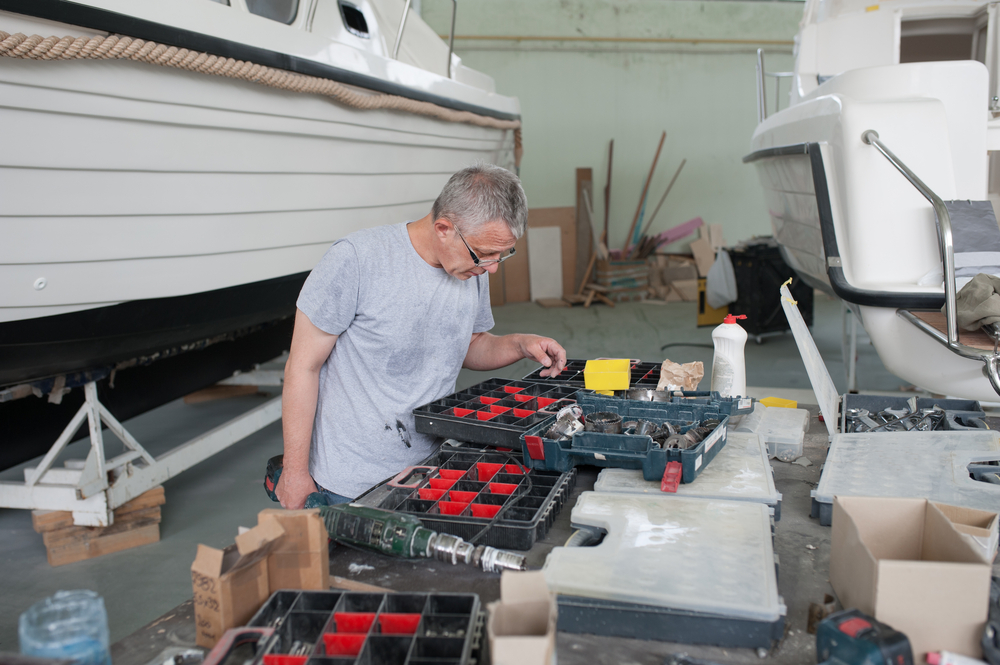
Collect and recycle* the following general wastes for disposal at a waste recycling and reprocessing facility:
- Clean cardboard and paper;
- Aluminium cans and glass drink bottles;
- Plastics labelled 1, 2 or 3;
- Clean empty steel drums and cans;
- Scrap metal, including zinc anodes; and
- Engine and dry cell batteries.
There are more great tips in the Tas boat repair guidelines document: environmental_guidelines_for_boat_repair_and_maintenance and the EPA document: Waste Management EPA.
Be mindful of hazardous waste and what to do with it
Boat repair and maintenance activities create wastes that are considered hazardous and require proper handling. Managers of boatyards and marinas are liable for all hazardous waste on their premises. Typical wastes which are classified as “hazardous” include oil, grease, diesel fuel (waste oil), oily bilge water; contaminated soil; gasoline and water (ignitable if flash point is less than 140°F); solvents, such as acetone, kerosene, mineral spirits; strong acids and alkalines (corrosive if below 2 or above 12.5 pH); and paint chips or leftover paint (often toxic, if marine paint).
Make sure you dispose of any hazardous waste appropriately, not just thrown into the skip bin with all the timber and other refuse!

